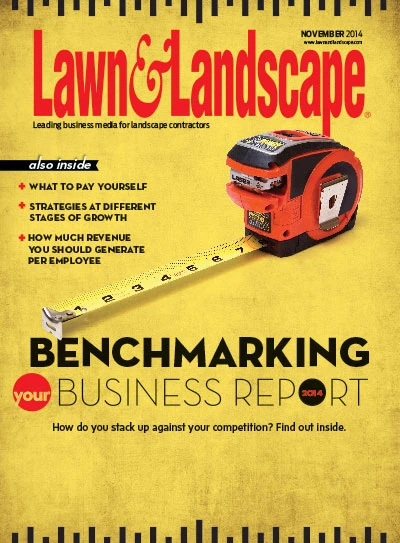
 When it comes to smarter workers, everyone benefits thanks in large part to our tax laws. The snow removal and ice management business prospers with smarter, better-trained employees – and a tax deduction if they foot the bill for employee education or training costs.
When it comes to smarter workers, everyone benefits thanks in large part to our tax laws. The snow removal and ice management business prospers with smarter, better-trained employees – and a tax deduction if they foot the bill for employee education or training costs.
Smarter employees reap a tax deduction for some educational expenses and are often rewarded with higher pay, promotions or more opportunities. When suppliers, equipment manufacturers, distributors or wholesalers, provide training or education for a snow removal operation’s employees, both the worker and the business benefit.
One of the major assets in any snow removal business is its employees. As is the case with most business assets, the snow removal and ice management operation usually has quite a bit of money invested in hiring and training a worker. A smart snow removal contractor or business owner realizes that improving a business asset can reap rewards far exceeding the cost of any improvements made to it. Similarly, workers improve with additional training or education.
Basic smarts.
At its most basic, a snow removal business that trains a new worker or an existing worker for new duties, incurs what our tax laws consider “ordinary and necessary” tax deductible business expenses. It is when expenditures are made for training or education by others, or outside the business, that the tax rules often kick-in.
It little matters whether a snow removal contractor is self-employed, an employee of his or her own snow and ice removal business or simply an employee, tax deductions and unique write-offs are abound for anyone willing to look for them – or seek direction from an expert.
In fact, under those tax rules, many educational and training expenses incurred by a snow removal business are both tax-deductible by the business and, at the same time, tax-free to the recipients. A snow removal professional or business may deduct the cost of “ordinary and necessary” expenses paid for employee education and training.
It may also deduct the cost of education for the business owners if it can show that the education or training “maintains or improves skills required in the trade or business,” or that the education is required by law or regulations for maintaining a license, status, or job.
For example, professionals in many fields routinely deduct costs for continuing professional education. Of course, expenses incurred to meet the minimum requirements of an individual’s present trade or business, or those that qualify them for a new trade or business, are not deductible.
This is true even if the education maintains or improves skills presently required in the current employment.
The employer pays.
An often-neglected provision of our tax law permits every snow removal contractor to claim a tax deduction for expenditures made to educate or train employees. An ideal “fringe” benefit for any employee – even employee-owners of their own businesses. And, best of all, it is deductible by the business and tax-free to the recipient.
In general, an employer with an educational assistance plan can deduct up to $5,250 of educational assistance provided to an employee each year. Without an educational assistance plan, or if educational assistance exceeds the $5,250 threshold, the amounts qualify as a tax deduction if they are so-called “working condition” benefits. A working condition benefit is a service or property that if an employee paid for it, the amount paid would have been deductible as a personal business expense.
An educational assistance program is a separate written plan that provides educational assistance only to a snow removal or ice management operation’s employees.
These expenses usually include the cost of books, equipment, fees, supplies and tuition. The cost of a course or other education involving sports, games or hobbies, is usually not included unless required as part of a degree program or has a reasonable relationship to the business.
Although the tax law requires an actual “plan,” the rules do not require an employer to fund the plan’s educational benefits. In fact, most businesses with a plan pay the educational benefits out of the operation’s cash flow.
Naturally, the benefits paid to participants cannot be conditional on their making contributions to the plan.
No educational assistance plan or program is permitted to pay more than 5 percent of its benefits to principal (5 percent or more) shareholders or to an employee who received more than $110,000 in pay for the preceding year unless the employee was not also in the top 20 percent of employees.
Plus, the business must provide “reasonable” notice concerning the availability and terms of the plan to all eligible employees.
Assisting education.
With an IRS-approved educational plan, payments for educational expenses, even for graduate level courses, are excludable from the gross income of the employee.
What's more, employees may be able to exclude as “working condition fringe benefits,” any amounts that are not excludable under the basic plan. In addition, all payments made by a snow removal operation – or any business with a similar plan – are tax deductible as ordinary and necessary business expenses.
Despite the latitude given snow and ice removal contractors and businesses, there are restrictions placed on educational assistance plans. Educational assistance, to our lawmakers, does not include payments for tools or supplies that an employee gets to keep after completing the course or employee meals, lodging or transportation
.
Worker basics.
An employee itemizing his or her personal deductions can claim a deduction for the expenses paid for work-related education. The deduction is the amount by which qualifying work-related education expenses plus other job and certain miscellaneous expenses is greater than 2 percent of the employee’s adjusted gross income. An itemized deduction reduces the amount of income subject to tax.
For the self-employed snow removal professionals, expenses for qualifying work-related education are deducted directly from self-employment income. This reduces the amount of income subject to both income tax and self-employment tax.
Work-related education expenses may also qualify for additional tax benefits, such as the tuition and fees deduction and the American opportunity and lifetime learning credits.
Work-related education.
The cost of qualifying, work-related education can often be deducted as personal business expenses by an employee. This is education that meets at least one of the following two tests:
- Education required by an employer or by law in order to keep present salary, status, or job. Of course, the required education must serve a bona fide business purpose of the employer.
- Education that maintains or improves skills needed in the individual’s present work.
However, even if the education meets one or both of the above tests, it is not qualifying work-related education if it:
- Is needed to meet the minimum educational requirements in the individual’s present trade or business, or
- Is part of a program that will qualify the individual for a new trade or business.
Of course, an individual can deduct the costs of qualifying work-related education as a personal business expense even if the education could lead to a degree.
The fact that an individual is already employed does not mean the minimum requirements for qualification in that employment have been met. If new education requirements are established after an individual has met the minimum requirements, that individual will be treated as continuing to meet those qualification requirements.
It should also be kept in mind that a change in duties is not a “new trade or business,” if the new duties include the same general work involved in the present employment.
Thus, changing from an elementary to a secondary school teacher does not result in a new trade or business. Also, a change in duties from classroom teacher to principal is not a change in trade or business.
Education pays, not costs.
Training and education are vitally important for every contractor and business in order to ensure the success and continued profitability of the operation.
Those training and educational expenses, whether paid for by the employer, by a supplier or equipment distributor, or subsidized or sponsored by an industry group or association, can be considered fringe benefits because they are, for the most part, tax-free to the recipient.
The employee-owner, the self-employed contractor or employee, being educated enjoys an offsetting tax deduction for expenses not covered by the employer/business.
Thus, everybody profits, especially the business that benefits from smarter, better educated or trained employees. The snow removal business can, of course, claim a tax deduction for educational expenses, all the while providing employees with a valuable, tax-free fringe benefit.
Regardless of who foots the bill for education, the rewards of better-trained employees are something every snow removal operation can reap.
Both contractors and their employees can help reduce the cost of that education with tax breaks.
The author is a financial writer based in Ardmore, Pa.
Get curated news on YOUR industry.
Enter your email to receive our newsletters.
Explore the November 2014 Issue
Check out more from this issue and find your next story to read.
Latest from Lawn & Landscape
- Tribute to an industry guru
- Caterpillar names Christy Pambianchi as chief human resources officer
- Ceramica acquires Fundraising Brick
- Senske Family of Companies acquires Huron Pest Control
- Sunseeker unveils new X7 Series Robotic Mowers
- Bobcat Company debuts MT120 mini track loader
- Senske Family of Companies opens new corporate office
- Autonomowus Lawn Company adds robotic mowers to Genan tire recycling plant






